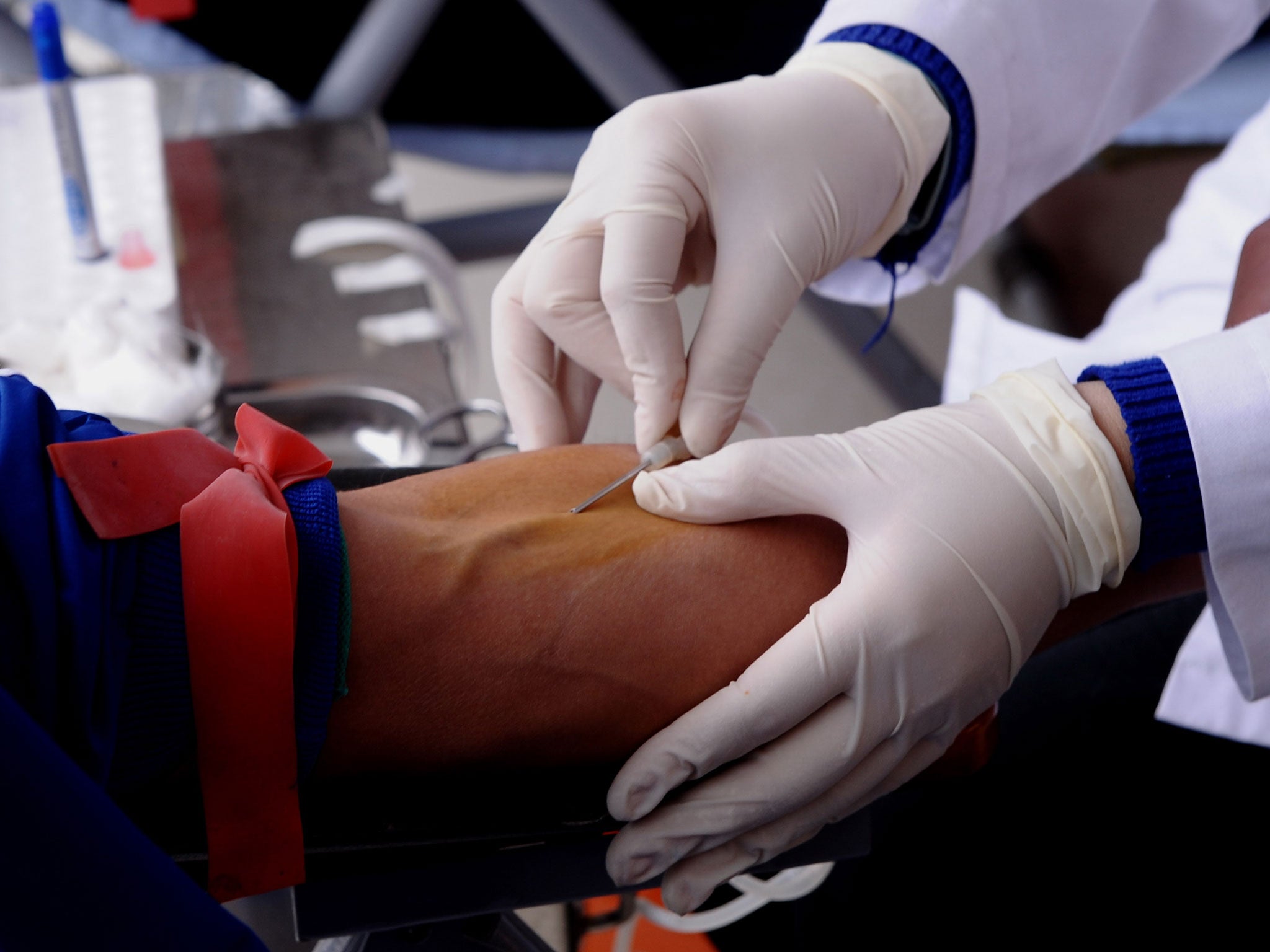Women dying of ovarian cancer because GPs fail to spot symptoms
‘I had a fluke diagnosis when I was admitted to hospital with appendicitis. If that hadn’t happened, the cancer probably would have spread,’ says woman

Women who have ovarian cancer are being failed by GPs who overlook symptoms of the disease, campaigners have warned.
The warning comes after a study by charity Target Ovarian Cancer discovered women are often oblivious to key symptoms of the disease.
Researchers who polled 1,000 women living in the UK discovered four in five women have no idea bloating is a symptom of ovarian cancer.
Around seven in 10 women do not know abdominal pain is a symptom and 97 per cent were unaware feeling full was is a sign of the disease.
Some 99 per cent of those polled did not know having to urinate more urgently can be a sign.
Every day 11 women die from ovarian cancer, with two-thirds diagnosed with the disease once the cancer has already spread, which makes it more difficult to treat and increases the likelihood of it returning.
If doctors are able to diagnose ovarian cancer at the earliest stage, nine out of 10 women will go on to live for five years or longer, but around one in ten survive if it is only caught at stage IV, the most advanced stage.
But Target Ovarian Cancer said key symptoms were being ignored “both by those experiencing them and their GPs”.
Annwen Jones, the charity’s chief executive, said: “These figures are incredibly disappointing. We know we’ve shifted the dial in the past 10 years, through the dedication of thousands of Target Ovarian Cancer’s campaigners.
“But it is not enough. Knowing the symptoms is crucial for everyone. We need to make sustained and large-scale government-backed symptoms campaigns a reality. Progress is possible. If we do this, fewer people will be diagnosed late, fewer will need invasive treatment, and ultimately, fewer will die needlessly from ovarian cancer.”
The charity warned ovarian cancer can develop and grow before it is discovered in cases where symptoms are overlooked by women themselves or their GPs - or mistaken as being IBS.
Researchers noted the disease kills three in 10 women in the year after it is first identified if the illness is diagnosed late.
The survey discovered 40 per cent of UK women wrongly believe cervical screenings, also known as a smear tests, look for ovarian cancer. This is a substantial rise from the 31 per cent of women who thought this was the case in a 2016 poll.
Researchers argued the commonly held misconception that a smear test helps to identify ovarian cancer prevents people from keeping alert for symptoms of the illness.
Katy Stephenson, who was diagnosed with early-stage ovarian cancer last year, said: “I had been experiencing symptoms like bloating and needing to wee more urgently for a few months, but I’d put it down to being perimenopausal.
“I had a fluke diagnosis when I was admitted to hospital with appendicitis. If that hadn’t happened, the cancer probably would have spread, and I hate to think about what would have happened.
“I was actually told that I wouldn’t have symptoms in the early stages of ovarian cancer – but I did.”
Ms Stephenson, a 47-year-old woman from Bury St Edmunds, urged everybody to be aware of the symptoms of ovarian cancer.
“The only person that will catch them is you, so be aware of your own body, speak to a GP. And don’t be afraid to mention ovarian cancer if you’re worried,” she added.
Each year, there are roughly 7,500 new ovarian cancer cases in the UK – with around 4,000 deaths taking place annually.
Ovarian cancer is one of the most common types of cancer in women – with the NHS saying around half of women with the disease will live for at least five years after diagnosis, while around one in three will live at least a decade.
Dr Victoria Barber, a GP who works in Northamptonshire and campaigns for ovarian cancer to be diagnosed early in the primary care community, said: “Symptoms do appear early on in ovarian cancer, and your GP wants to hear from you if you’re experiencing any of them, if they are new for you and if they do not go away.
“Similarly, it’s vital that GPs are knowledgeable on ovarian cancer and know how to advise patients who have concerns. Target Ovarian Cancer has a GP education programme that can help you do this.”
Join our commenting forum
Join thought-provoking conversations, follow other Independent readers and see their replies
Comments



Bookmark popover
Removed from bookmarks